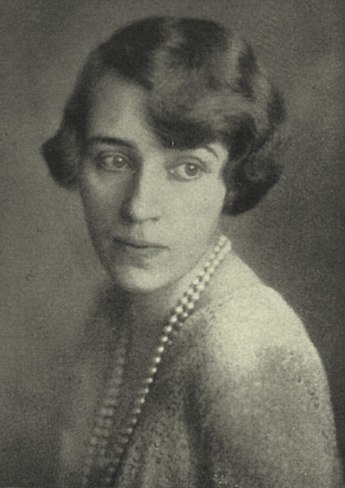DIE MORITAT VOM REICHSTAGSBRAND
Als der Trommler dreizehn Jahre
aller Welt verkündet hat
die Verbrechen der Kommune,
fand noch immer keines statt.
Und die kleinen Trommler grollen
es muss endlich was geschehn,
die Verbrecher, seht, sie wollen
die Verbrechen nicht begehn.
Eines Tags, es war noch Winter,
blieb man an der Panke Strand,
denn der Führer sagte in der
Luft liegt heut ein Reichstagsbrand.
Und an diesem Montagabend
stand ein hohes Haus in Brand.
Fürchterlich war das Verbrechen
und der Täter unbekannt.
Zwar ein Knabe ward gefunden,
der nur eine Hose trug
Und in Leinwand eingebunden
der Kommune Mitgliedsbuch.
Wer hat ihm dies Buch gegeben,
warum stand er hier herum?
Die SA, sie stand daneben
und die fragt man nicht, warum.
Das Gebäude anzustecken
mussten zwölf gewesen sein,
denn es brannte an zwölf Ecken
und war hauptsächlich aus Stein.
Mittendrin in den zwölf Bränden
standen zwölf von der SA
wiesen mit geschwärzten Händen
auf den schwachen Knaben da.
Und so war denn durch den Führer
die Verschwörung aufgedeckt:
freilich, was noch alles aufkam
hat so manchen doch erschreckt.
In dem Haus, wo die Verschwörung
unbedingt hindurch gemusst,
wohnte ein gewisser Görung,
der von allem nichts gewusst.
Er gab allen Wächtern Urlaub,
war des Reichstags Präsident
und war grade nicht zuhause,
als er hört: der Reichstag brennt!
Warum gabst du deinen Wächtern
heute Urlaub, Präsident?
Heute ist doch grad der Montag,
wo dein ganzer Reichstag brennt!
Könnte man ihn so verhören,
fiel ihm wohl die Antwort schwer.
doch man kann ihn nicht verhören,
denn verhören, das tut er.
Er verhört nicht Hermann Göring,
so erfährt er nicht, was wahr
und was unwahr ist und schließt draus:
der Kommune Schuld sei klar.
Und noch eh die Nacht vergangen
diesem blutgen Februar
war zerschossen und gefangen,
was ein Feind des Hitler war.
Als zu Rom der Kaiser Nero
dürstete nach Christenblut,
setzte er sein Rom in Flammen
und es sank in Asch und Glut.
So bewies der Kaiser Nero,
dass die Christen Schurken sind.
Ein gewisser Hermann Göro
lernte das als kleines Kind.
Zu Berlin im Jahre neunzehn-
hundreddrei und dreissig stand
dann an einem Montagabend
des letzten Reichstag Haus in Brand.
Der dies sang hieß Oberfohren
und der wurde nicht mehr alt
als der Welt es kam zu Ohren,
hat man schnell ihn abgeknallt!
Murder Ballad Of The Reichstag Fire
Thirteen years on end the Drummer
warned the world of coming crime
perpetrated by the Commune:
hasn’t happened all this time.
And the little drummers grumble:
something, happen soon – it’s time!
Trouble is, you see, the criminal
types will not commit the crime.
On the towpath - it was winter -
people gathered, lingered there:
for today, remarked the Führer,
Reichstag Fire is in the air.
On that very Monday evening
stood a lofty house in flame
such a dreadful crime, and no-one
knew the perpetrator’s name.
But a youngster was discovered
he was naked to the hip
from his lining they recovered
book of Commune membership.
Ask by whom this book was given
why the dolt was standing by
all those Brownshirts in the offing
nobody to ask them why.
How to set alight the building
with twelve men it could be done
it was burning at twelve corners
and was mostly made of stone.
Twelve fires burning: in amongst them
stood twelve Brownshirts, quite a squad
pointed with their blackened fingers
at the feeble-minded lad.
So it happened that the Führer
cracked the whole conspiracy
and the whole ensuing story
shocked the great majority.
In the house where the conspiring
was unarguably planned
lived a person, name of Goering
unaware and ignorant.
He was Chairman of the Reichstag
he dismissed the sentinels
when he heard ‘The Reichstag’s burning’
he of course was somewhere else.
Kindly tell us Mr Chairman
why you sent the guards away
after all, that very Monday
was the Reichstag’s burning-day.
If he could be cross-examined
he would struggle, to be sure
but he can’t be cross-examined
he’s a cross-examiner.
He won’t cross-examine Goering
truth and lies he will not hear
takes no evidence, averring
that the Commune’s guilt is clear.
Long before the sun had risen
February night of blood:
shot to pieces or in prison
all the anti-Hitler brood.
Likewise Roman Caesar Nero
Christian blood was to his taste
so he set his Rome a-blazing
soon in ash and fire effaced.
Thus he proved it, Caesar Nero
Christians, villains one and all
and a certain Hermann Goero
learnt of this when he was small.
1933 one evening
Monday night in Berlin town
Reichstag had no further meetings
for its house had been burnt down.
This was sung by Oberfohren
short his life, the man who sang
when the world was told the story
he was nobbled with a bang!
